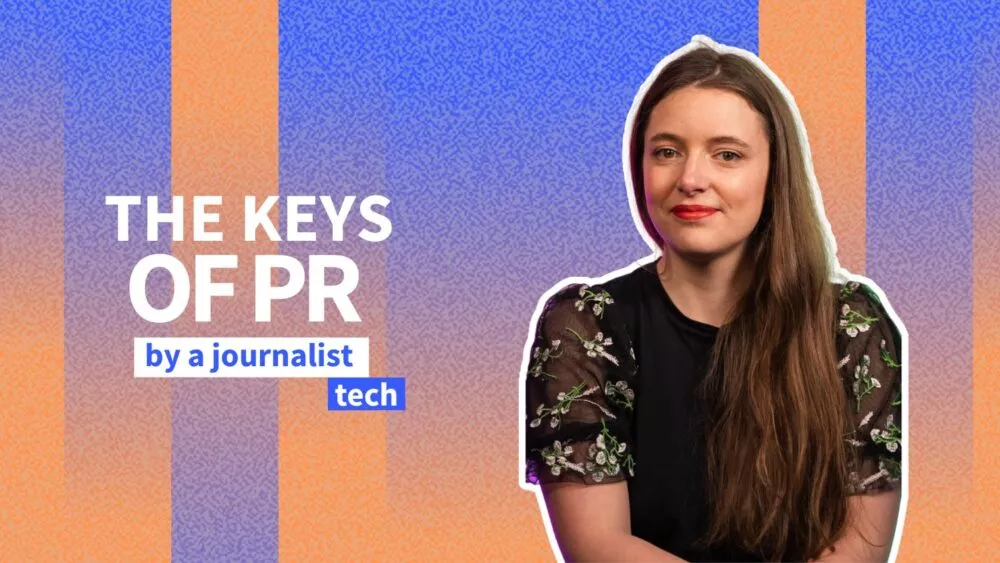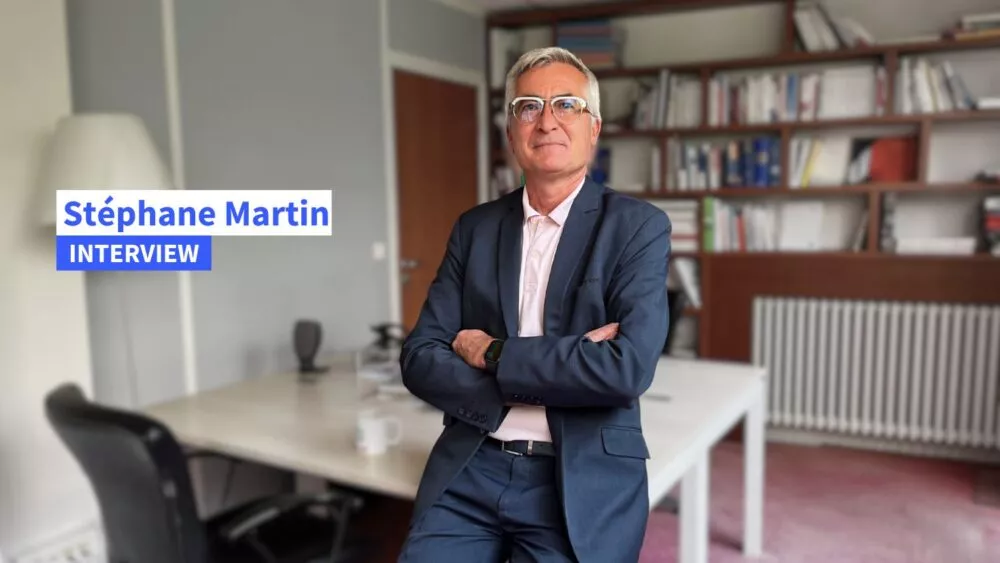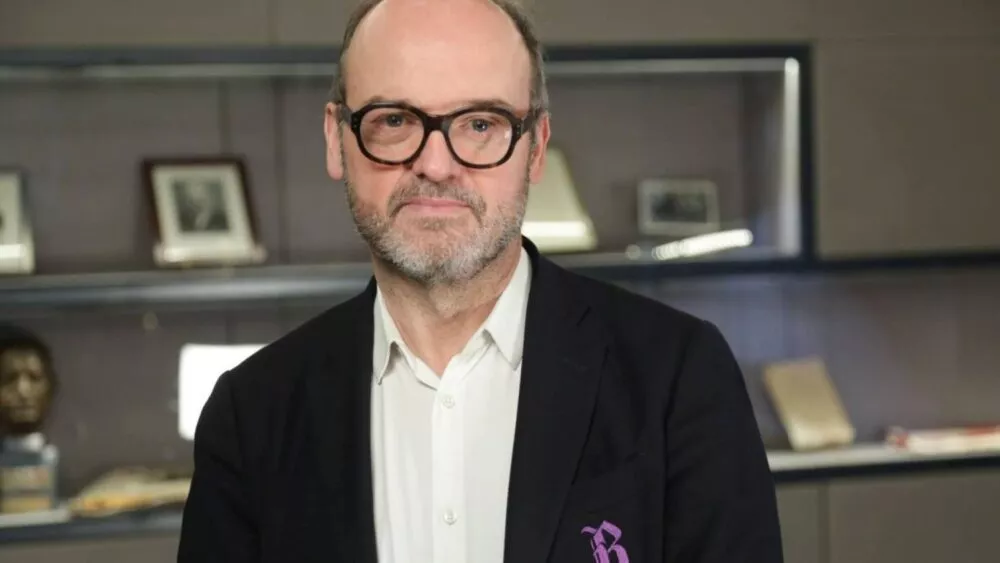Would you say the series “La Fièvre” is faithful to the reality of the communication world?
At the beginning of the series, there is a somewhat schematic and theoretical view of the communication profession, which I didn’t quite identify with. Then, little by little, I was surprised by the shift between the two extremely different communicator profiles. Ultimately, through the character of Sam, the series sketches a new portrait of the communicator, as spin doctors of society. Perhaps the moral of the story is that very cold communication, where one controls the mechanisms of public opinion to divide it, like Marie Kinsky’s, isn’t the most effective, but rather an intuitive, authentic communication, like Sam Berger’s.
Beyond the simple good-versus-evil opposition, there is a way of communicating that triumphs in La Fièvre: empathy, dialogue, and simplicity of human relations, rather than the “dark side” image of leaders, often the caricature of the profession. In the end, it’s a nice portrait of the communicator, who is more often in service of the public interest than commonly thought!
In the series, the Kairos communication agency changes its strategy several times. Is this a common and effective practice?
In my opinion, prioritizing mechanical strategies without adapting them to the reality of the facts isn’t a good way to proceed. A communicator is not a theorist. It’s quite the opposite. They are often intuitive, someone who is keen on societal trends and movements that will guide them to provide the appropriate advice, the right message at the right moment (which is the meaning of the word “kairos” in Greek!). It’s based on this ongoing analysis that one can evolve strategies, change angles, and find the idea that will make a difference.
We try to have maximum empathy with the facts to achieve the best possible communication. This might seem surprising, but I believe a communicator often listens more than they speak.
What strategies would you have chosen instead of the communicator Sam Berger, after her famous footballer client slapped his coach while insulting him with “toubab”?
The best advice we could give today to a public figure or client caught in the frenzy of a crisis specifically fueled by social media is… to go talk to journalists. In the face of frenzy, it’s journalists who source and authenticate speech. Facing those who increasingly question media legitimacy and the growing power of fake news online, we must defend the press, and that is also a role for communicators. Even if in the series, journalists are sometimes depicted inconsistently, and I regret that. In such crises, journalists have more than ever a role to assert. For example, an AFP news dispatch can cure an online fever because it will irrigate all the media, which in turn will carry verified information on social networks.
In the series, communicators use social media as the main means to analyze public opinion. Do social media have as much importance in the series as in reality?
Something that strikes me in this series and in today’s public debate is that we overestimate the weight of social media. I’m not saying social media have no importance in public debate — for better or worse — as they catalyze radicalization of debates and societal fractures. But does today’s France have the fever depicted by the series? I don’t think so. During the 2022 presidential election, only 7% of French people used social media as their primary news source, far behind television news (30%).
Today, the reflex for many French people is to check their daily press websites or turn on their TV to see what journalists who handle the information have to say — not to go on X and its highly antagonistic conversations.
In the series, we sometimes see communicators from the Kairos agency openly express their strategic disagreements in front of the client. What do you think about this practice?
I think it’s useful from a dramatic point of view in the series, obviously, but it doesn’t really happen like that in real life. Communicators showing such a spectacle in front of their clients would fail a big part of their mission: building trust. Communication is a consulting profession, even if it’s not an exact science. You are your client’s trusted partner. And trust is built by basing your speech recommendations on reality and authenticity of facts, which will allow the right communication decision to be made. We communicators, in such situations, don’t tell our clients what to do in an authoritative way. Our mission is rather to guide them between facts, emotions, and the weight of each word in their speeches.
The Kairos agency’s communicator Sam Berger mentions the concept of “protean truth,” which means constructing a narrative to serve a client’s interests. Is this a common manipulation in your opinion?
Stéphane Fouks often says that in a crisis, we don’t have to tell the whole truth but must only tell the truth. Otherwise, we fall into alternative facts communication, which isn’t communication anymore but lying. Take former Prime Minister Edouard Philippe, who said he would also share what he “didn’t know” about the COVID-19 epidemic during the crisis. In that case, it wasn’t a strategy to evade questions but a demonstration of sincerity about a reality the politician couldn’t fully grasp. It’s a narrative, but it wasn’t a lie.
In real-life crisis communication, is it common to try at all costs to sell your narrative to the press?
Obviously, there can be a battle of narratives, but in the end — and this is the series’ moral — authentic communication based on facts wins over all cold communication strategies, even the slickest ones, that try to create parallel realities. If communicators lose sight of this “common sense,” they cannot do their job satisfactorily and honestly towards themselves and their clients.
In episode five, Sam Berger’s adversary, Marie Kinsky, deploys an army of troll bots on social media platform X to influence public opinion. Does this practice really exist?
I doubt that this kind of perverted practice exists in French communication agencies. However, I sadly know it is a geopolitical issue, often reflecting some states’ will to destabilize public debate elsewhere. Once voices are fictitious, it’s no longer communication but the art of lying and manipulation. And when such maneuvers are revealed, it’s inevitably a loss for the defense and communication strategy of those who used them. Investing in trolls means losing a lot of communication benefits and potentially a lot of money. Shaping facts through good discourse and the right angle is not about twisting them. The limit is very fragile and must not be crossed.
At Havas Territoires, do you also have continuous monitoring rooms equipped with giant screens and advanced metrics like Kairos?
Today’s communicator has a computer and maybe two phones to miss no information, and agencies like Havas obviously have very advanced monitoring tools. If you meet one on the metro or train, you might find them a little strange because sometimes they will be on their three screens simultaneously. But they don’t have a big secret room with giant screens. I think this fantasy about the profession reflects fear of uncontrollable information exploding on social networks through artificial maneuvers. But most communicators in this country work with human material, exchanging speeches and commitments in a democratic framework that we must all protect.
After the slap that starts the crisis, the Kairos agency recommends 72 hours of silence. Is this a real-life rule?
This rule was defined by Jacques Pilhan, who worked with François Mitterrand and Jacques Chirac. Obviously, communication for a president in the 80s or 90s doesn’t follow exactly the same rules as an actor today caught in the fever of social networks or media frenzy. This rule makes sense to create scarcity of speech, and thus desire. But I believe today, given information overload and saturation, that desire is harder and harder to create. What consumers and citizens mostly want are answers to their questions, and expect authentic communication from politicians and brands alike.
In the series, communicators have a very compartmentalized and marketed vision of society. What do you think?
My profession is different from marketing, though related. I try to ensure that the speeches and commitments of my clients can be heard in the public debate, in the great media conversation. Ultimately, this helps create adhesion and preference for the brands or services they offer. For example, at Havas Territoires, I try to give voice to actors from territories because French debate is very Paris-centric. This isn’t directly marketing but an engagement in public debate that serves their reputation.
Is it common, as practiced by Kairos, to use qualitative studies with focus groups to understand public opinion and motivations in a crisis?
For me, a good qualitative study for a communicator isn’t necessarily artificial focus groups but listening a lot to what happens around, being alert, constantly developing one’s own intuition and reflection about France’s state, its big societal movements, trends, through exchanges with the economic world, academics, journalists, associations, and elected officials. That’s why a communicator must be turned towards society and not theories. Especially leaving Paris, knowing the territories well, strengthening ties and exchanges with French people concerned by topics other than those animating the capital. That’s the best focus group a communicator can have.
In the series, communication seems all-powerful regarding its influence on public opinion. What do you think?
I think all-powerful communication is a fantasy. What La Fièvre demonstrates more is the growing polarization of debates on social media, leading to more violent communication confrontations in the media, and worrying conflictualization of political and social life. The confrontation between Marie and Sam represents this very well.
Do you then consider that communication cannot shape opinion?
If communicators have a role, it is precisely to be points of balance in the face of this growing conflictualization, by presenting speeches as well as possible in increasingly binary or unreadable debates. Communication won’t create the great opinion trends of this country but will allow actors to have influence, i.e., a share of audience in opinion because they found the angle or idea that will get them listened to.
After the slap, the footballer accused of anti-white racism becomes the main subject for extremist parties. Would you say there is always a political dimension in every crisis?
There is a political dimension in every crisis insofar as it is always linked to the authority of speech and competing legitimacies. But what is interesting today is that even crises unrelated to politics generate more and more reactions from elected officials. This trend is reinforced by social media, pushing politicians to react — or even overreact — to crises they feel their silence would be punished by public opinion.
In your career, which crises have marked you the most?
Two crises marked me during my years in governmental offices, though very different, both concluding unexpectedly, showing the importance of dialogue and authentic communication. The Yellow Vests crisis and COVID-19. The Yellow Vests crisis wasn’t resolved only by public policy responses but mainly by a decision addressing the roots of anger: the Grand Débat, which restored direct dialogue between the French and the government. For COVID-19, it was Edouard Philippe’s “I don’t know” that changed things amid great uncertainty and anxiety for public opinion during a crisis of trust in the government’s capacity to get through the crisis








